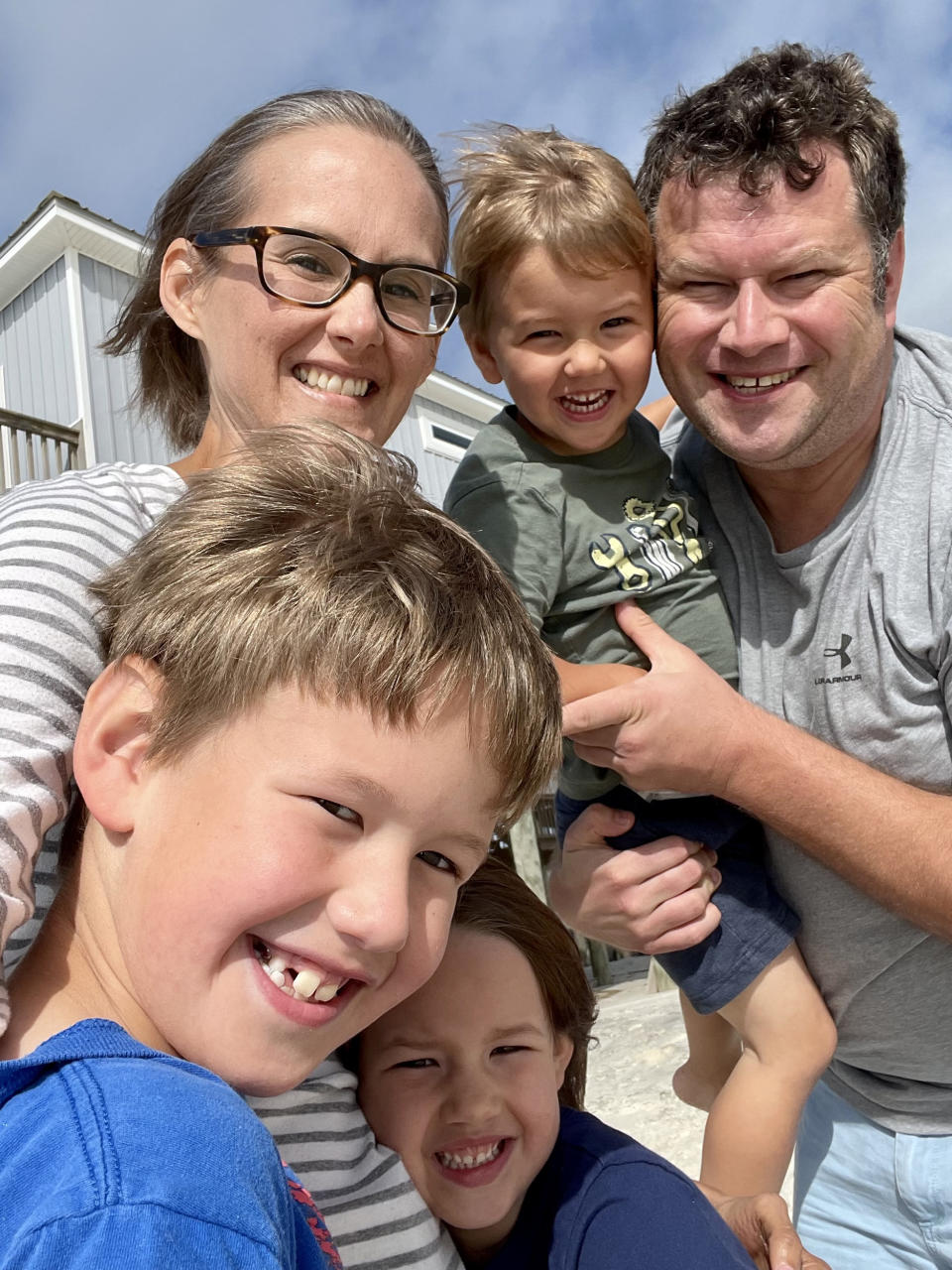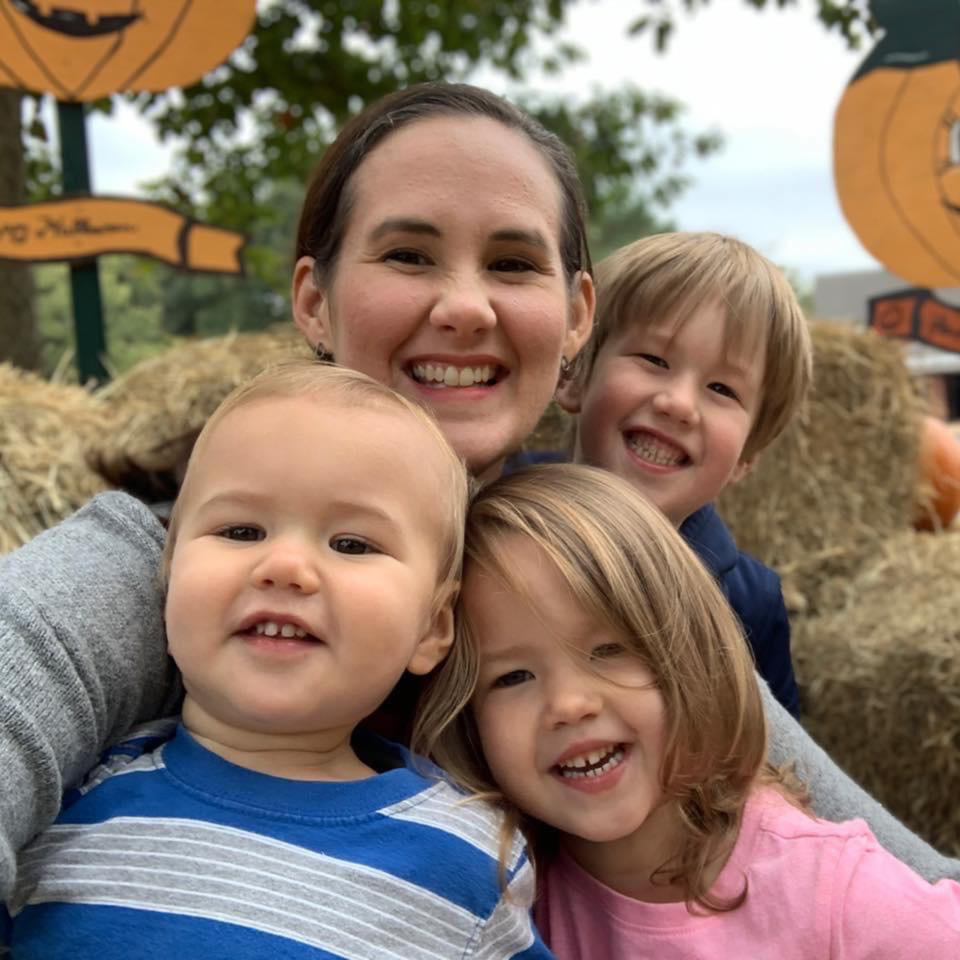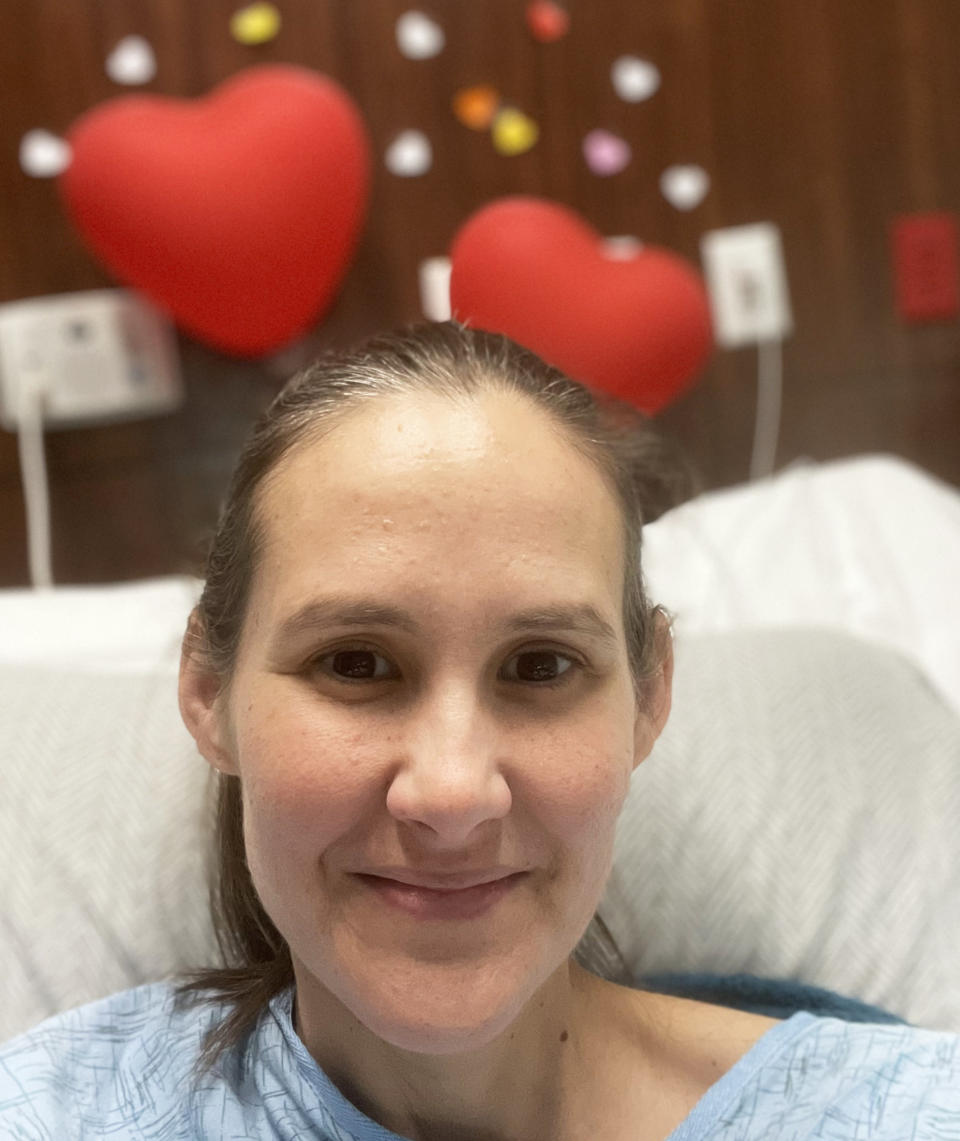Mom, 42, dies after warning about colon cancer
Ashley Mellen, the stay-at-home mom who shared her colon cancer story with TODAY.com in March, has died. She was 42.
Mellen passed away on April 4 at her home in Memphis, Tennessee, according to her obituary, just a little over a year after her sudden and unexpected diagnosis.
"She was a strong young mother of three who battled that nasty disease (until) the end," Mellen's husband, Eric, tells TODAY.com.
Prior to her diagnosis, Mellen thought she was doing everything right for her health — eating lots of fruits and vegetables, buying organic, opting for grass-fed beef and not using any toxic substances in her home.
She said she felt so well that she had taken no pain medicine, antibiotics, over-the-counter or prescription drugs since her 20s.
Mellen saw her OB-GYN for pregnancy-related issues, but nothing that would cause alarm. She thought she was a healthy woman going about her life when everything changed out of the blue in January 2022.
A visit to the emergency room for what doctors first thought was appendicitis revealed colon cancer that had silently spread through her body.
“I’m in the fight for my life,” Mellen told TODAY.com in March.
“The only way that I have been able to endure and to continue is God’s presence with me and my desire to see my children grow up and to be with my husband for more years.”

Colon cancer can be a 'silent killer'
There were virtually no early symptoms of the colon cancer.
Mellen and her family had just enjoyed a wonderful holiday season when she noticed blood in her stool one time in December. She didn’t think it was anything to worry about and since she had already scheduled an annual physical with her doctor, she thought she might mention it then. The mom never made it to that appointment.
In January, she started to have pain in her stomach and up towards her ribs, which she attributed to digestive problems. It didn’t bother her too much at first, but grew worse for about a week until it was so severe one evening that Mellen went to the emergency room.
Doctors told her she probably had appendicitis, but a CT scan revealed a much more serious diagnosis.
“They pulled me into a little room and they said, ‘You have tumors in several places in your abdomen. You have cancer. We’re going to be admitting you to the hospital,’” Mellen recalled, tearing up.
“That was just a whirlwind. It’s just not something you expect at all.”
The colon cancer had already spread to her liver, making it stage 4 at diagnosis. The illness has sometimes been called a “silent killer” because patients may not see any warning signs before they have advanced disease.
Colorectal cancer often doesn’t cause symptoms until it has grown or spread, so any tumors found early through screening might be easier to treat, the American Cancer Society notes.
Genetic testing offers answer
Mellen said she had no reason to consider colon cancer. She had no family history of it and had no pain or rectal bleeding until just before her diagnosis. Unrelated digestive issues earlier in her life meant she underwent a colonoscopy in her 20s, which was clear.
But genetic testing provided a key clue. It showed Mellen had a genetic mutation that can lead to familial adenomatous polyposis — the development of many polyps in the colon that can become cancerous.

The MUTYH gene normally helps to prevent cancer, but a mutation in this gene causes it to stop working like it should, according to Memorial Sloan Kettering Cancer Center. A person must inherit two MUTYH gene mutations — one from each parent — to develop the polyposis.
Mellen said she inherited the gene mutation from both her parents, which she didn’t know until her diagnosis. She had five younger brothers who she hoped would start undergoing regular colonoscopies to save them from what she was going through. Some have gone through genetic testing as well.
Surgery was not an option for Mellen. She underwent 20 rounds of chemotherapy last year until November, when it stopped working and the cancer began to grow again. She was on a different type of chemotherapy and looking for other treatment options, possibly clinical trials or immunotherapy, when she talked with TODAY.com.
The family set up a GoFundMe account to pay for childcare and other expenses.
The mom had to spend a month in the hospital after her diagnosis and two more months out of her home for recovery. She returned home but was weaker than she’d been in a while, so she was trying to gain weight and energy.

“It’s been really hard,” she said. “You’re used to doing everything yourself, taking care of things, planning things and preparing things and then all of a sudden, you can’t do any of it and you have to depend on other people to do it all.”
Mellen encouraged people to get colonoscopies, pay attention to any symptoms and find another doctor if the one you have now dismisses your concerns that something is wrong.
Regular colorectal cancer screening with a colonoscopy, stool tests or other strategies should begin at age 45, the Centers for Disease Control and Prevention advises.
People who have inflammatory bowel disease such as Crohn’s disease or ulcerative colitis; a personal or family history of colorectal cancer or colorectal polyps may need to be tested earlier, the agency notes.
This article was originally published on TODAY.com

